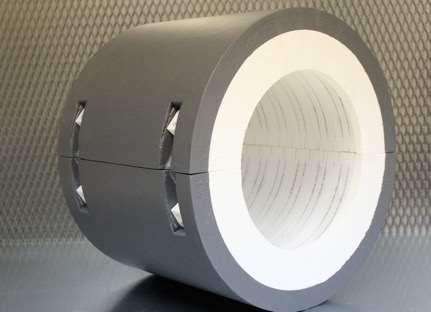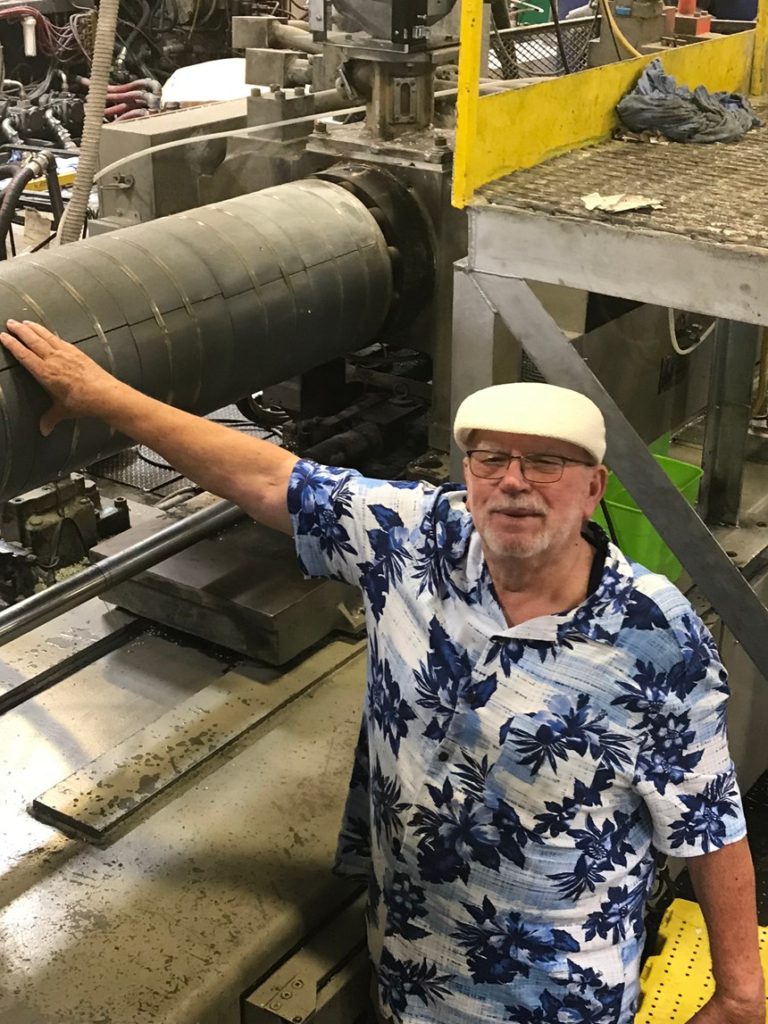
Swapping out OEM ceramic heater bands with special insulated TCS (Thermal Control Solution) heater bands saves California molder time and energy.
The work week at Norco Plastics used to begin at 3AM on Monday. Starting up operations after shutting down on Friday required an operator to arrive well before dawn and begin warming barrels on the custom molder’s 24 injection machines. Those presses, which skew heavy—up to 1800 tons, drew a huge amount of power during this initial startup, requiring the operator to stagger barrel warming.
“You couldn’t turn on all the heats at once,” explains John Williams, CEO at Norco, which is based in Chino, Calif. “It’s a lot of power draw at one time; you’d be amazed.” Williams says Norco eventually determined that it was more expensive to turn on all the heats at one time than it was to actually run the machines. These days, Norco is running seven days a week, but barrel heating time has been cut in half, thanks to the replacement of the machines’ OEM ceramic heater bands with TCS (Thermal Control Solution) heater bands from Rex Materials Inc.
The work week at Norco Plastics used to begin at 3AM on Monday. Starting up operations after shutting down on Friday required an operator to arrive well before dawn and begin warming barrels on the custom molder’s 24 injection machines. Those presses, which skew heavy—up to 1800 tons, drew a huge amount of power during this initial startup, requiring the operator to stagger barrel warming.
“You couldn’t turn on all the heats at once,” explains John Williams, CEO at Norco, which is based in Chino, Calif. “It’s a lot of power draw at one time; you’d be amazed.” Williams says Norco eventually determined that it was more expensive to turn on all the heats at one time than it was to actually run the machines. These days, Norco is running seven days a week, but barrel heating time has been cut in half, thanks to the replacement of the machines’ OEM ceramic heater bands with TCS (Thermal Control Solution) heater bands from Rex Materials Inc.

In the TCS system, heating elements are contained within a vacuum-formed ceramic fiber material, which acts as an insulator. The heating elements are just one inch from the barrel’s exterior, and thanks to the insulating properties of the ceramic fiber, while internal temperatures might reach 1000 F, the external shell can be touched by hand. Rex Material says TCS systems can achieve temperatures as high as to 3000 F. Densities can range from 12 to 50 lb/ft3 by using a variety of different ceramic fiber types, fillers, and binder chemistries.

Getting Hot Faster, Staying Hot Longer
In addition to cutting startup barrel heating in half and reducing overall power consumption, Williams said Norco has enjoyed some other benefits from the TCS bands. When a job is being set up or finished, operators can turn the heaters off. “The TCS bands will retain the heat all day,” Williams says. “They’ll just sit there, and the heat will be in them. You come back, turn them on, and within in 10 min or so you can start back up.”
Because of that heat-retention capacity, Williams said Norco also learned that the TCS bands cannot be left on for risk of resin degradation. “Sometimes in the past we left our heaters on through a shift or overnight because we knew we were going to start the machine in the morning,” Williams says. “If you do that with that with these, they have a tendency to over-bake the material in the barrel.”
Finally, the insulative properties of the Pyrolite have made the environment around the machines and across the shop floor, cooler. “You can touch these, but it is hot,” Williams says. “You can put your hand on them, but you can’t keep it there for too long. With the old ones, whatever temperature they were at the barrel that was pretty much what they were on the outside.”
Williams says that in the two years Norco has utilized the TCS technology, the company has benefited from greater energy efficiency and process stability, while its operators have benefited from more sleep. “From our people’s perspective,” Williams says, “they don’t really look at the power savings as much as, ‘I don’t have to come in at 3 o’clock in the morning anymore.’”


